Blah blah blah. There's too much serious Tech News. Here's some funny pictures that I definitely did not copy and paste from The Inter-Tubes.
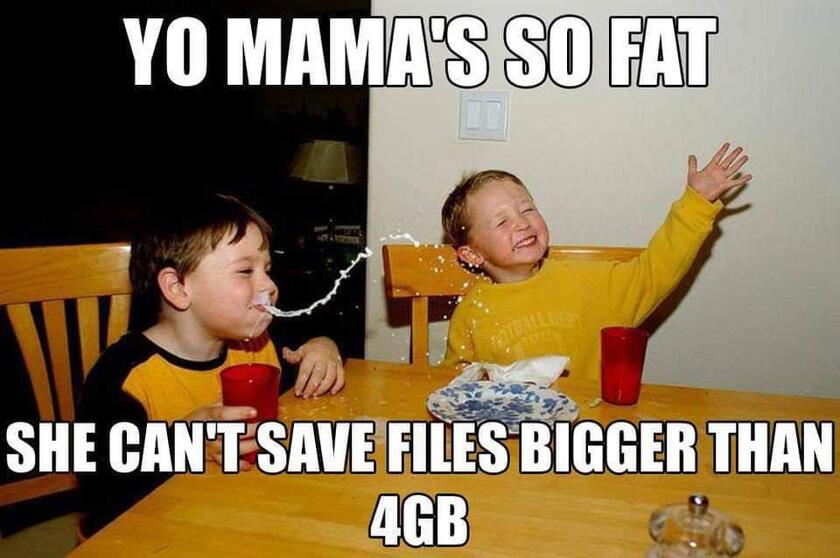

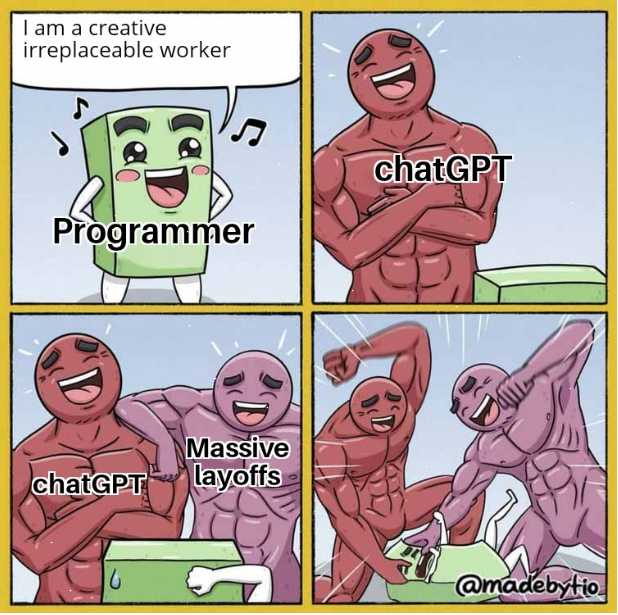



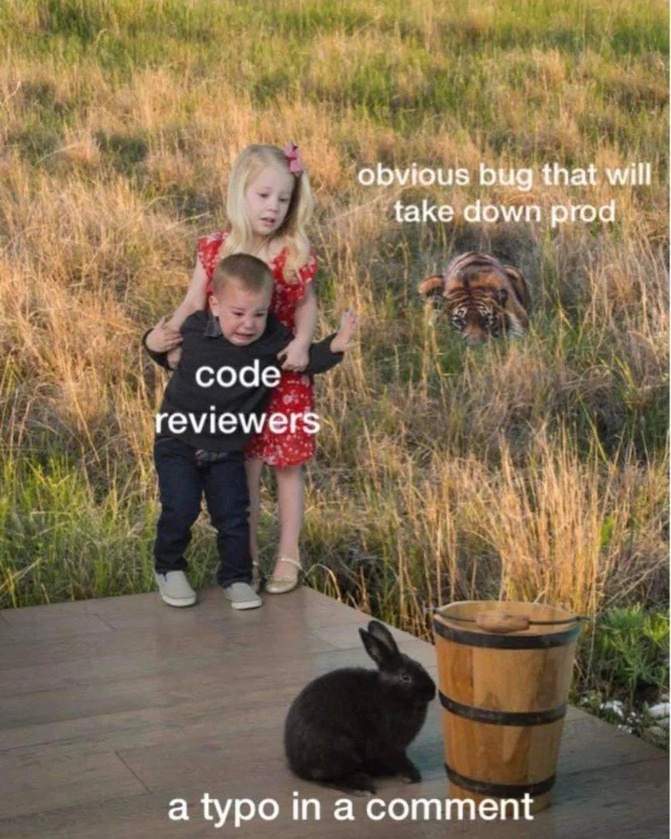











They made this thing until 2003?
Facts are important. When we get them wrong, it must be announced.
Article about the error:
https://lunduke.locals.com/post/5582689/critical-factual-error-found-in-lunduke-journals-coverage-of-wikipedia
Original "Wiki Piggy Bank" article:
https://lunduke.locals.com/post/4458111/the-wiki-piggy-bank
The foundation behind the biggest Linux Desktop environment -- the one used by Red Hat, Ubuntu, & SUSE -- is in dire straights. Wild.
And their only known plan to fix it involves a "Professional Shaman" & "sustainability, diversity, and inclusion". Seriously.
The full article:
https://lunduke.locals.com/post/5572069/is-the-gnome-foundation-going-to-go-bankrupt-in-1-year
A bunch of articles from The Lunduke Journal, plus contact information, is all right here: http://lunduke.com/
Ads are filling the entirety of the Web -- websites, podcasts, YouTube videos, etc. -- at an increasing rate. Prices for those ad placements are plummeting. Consumers are desperate to use ad-blockers to make the web palatable. Google (and others) are desperate to break and block ad-blockers. All of which results in... more ads and lower pay for creators.
It's a fascinatingly annoying cycle. And there's only one viable way out of it.
Looking for the Podcast RSS feed or other links? Check here:
https://lunduke.locals.com/post/4619051/lunduke-journal-link-central-tm
Give the gift of The Lunduke Journal:
https://lunduke.locals.com/post/4898317/give-the-gift-of-the-lunduke-journal
Those in power with openSUSE make it clear they will not allow me anywhere near anything related to the openSUSE project. Ever. For any reason.
Well, that settles that, then! Guess I won't be contributing to openSUSE! 🤣
Looking for the Podcast RSS feed or other links?
https://lunduke.locals.com/post/4619051/lunduke-journal-link-central-tm
Give the gift of The Lunduke Journal:
https://lunduke.locals.com/post/4898317/give-the-gift-of-the-lunduke-journal
Just as an FYI: Louis Rossman posts a lot of "uncovered stories" by the general journalism population as well. Today's post was on cell carriers selling your location data and not getting much of a consequence for it at all.
Hey, I found more factual errors in the Lunduke Journal! As recently as February 8th, the Lunduke Journal reported that "Linux Sucks" - which is factually incorrect as Linux is rad. Also, in some pre-cursor to the Lunduke Journal, Bryan reported that Windows is "Awesome", when we all know that is not true:
🤪
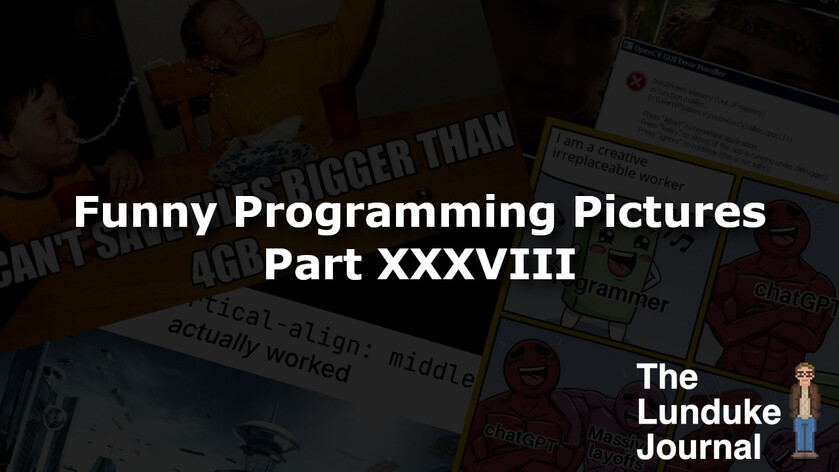
Blah blah blah. There's too much serious Tech News. Here's some funny pictures that I definitely did not copy and paste from The Inter-Tubes.


















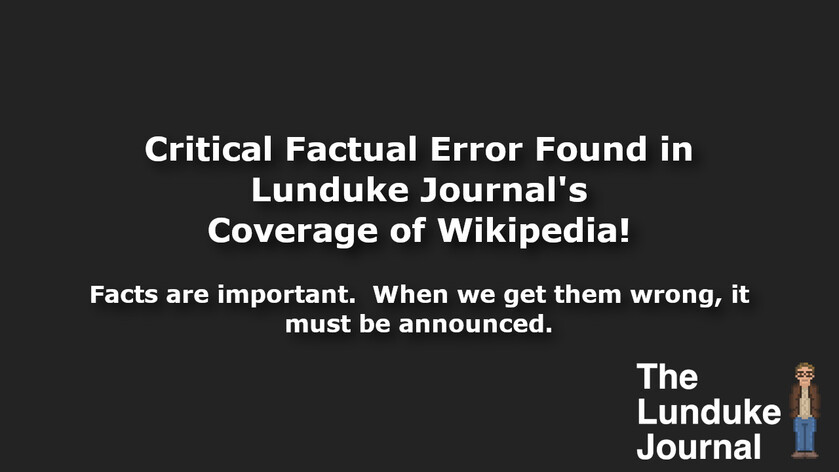
Stop the presses! A factual error in reporting from The Lunduke Journal has been found and verified!
Part of responsible journalism is a relentless dedication to the facts. This means that, when an error is discovered, it is critically important that the publication not only correct that error... but loudly and publicly announce it.
In an August 20th, 2023 article -- entitled "The Wiki Piggy Bank" -- I go in depth on the financials of Wikipedia (and the Wikimedia Foundation which runs it).
In one portion of that article, I discus the "Wikimedia Endowment". A fund worth over $100 Million dollars.
In that portion of the article, I made the following statement regarding the source of the funds for this endowment.
"If Wikimedia Foundation only contributed $30 Million (from user donations) to the Endowment... who contributed the rest of the money? A company? Rich benefactor? (No... it's not listed.)"
That statement... was factually incorrect.

It turns out that some of that information is, in fact, made publicly available... The Lunduke Journal simply missed it. An unfortunate error, as the details of this funding raises significant questions about Wikimedia and, quite honestly, makes the story even more interesting.
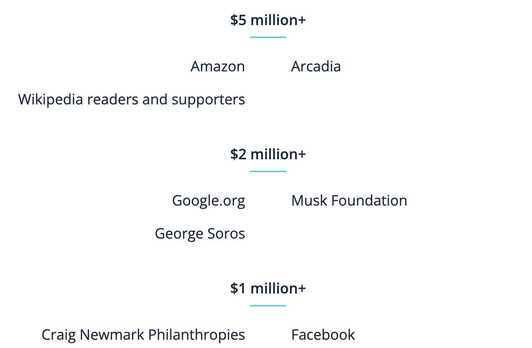
George Soros. Google. Facebook. While there are plenty of other names on the list of "benefactors", those three immediatly jump out as raising significant concerns regarding their potential control of Wikipedia.
Worth noting: The Lunduke Journal reached out to the Wikimedia Foundation, both before and after publication of the original article, for comments or corrections. None were ever provided. That article went on to be seen -- in one form or another -- tens of millions of times (across a number of platforms) over the months that followed.
Wikimedia was aware of the contents of this article. When The Lunduke Journal published the statement that their benefactors were "not listed"... they would have immediately known that this was an error. As portions of the article were shared, screenshoted, and quoted millions upon millions of times... they would have been reminded of that error. Repeatedly.
Which begs the question... why not correct the error?
The answer appears fairly obvious: They did not correct the error... because they did not want the error to be corrected.
Because, we can assume, the truth is worse for them than the error.
George Soros is among the most polarizing -- and most hated -- persons on Earth.
And, considering the pointedly political agendas and spending of the Wikimedia Foundation, the direct funding and involvement of George Soros only adds "fuel to the fire" in terms of concerns being raised.
I wish that I had caught this error prior to publication as it makes the story even more interesting. But I certainly see why The Wikimedia Foundation was not keen on these facts getting more widespread coverage.
This error has been corrected in the original article. I am also publishing this article, standalone, to announce the error. I will the follow up by publishing both a podcast and a video declaring both the error and the correction.
I want to thank The Lunduke Journal reader who sent in this correction. It is deeply appreciated.
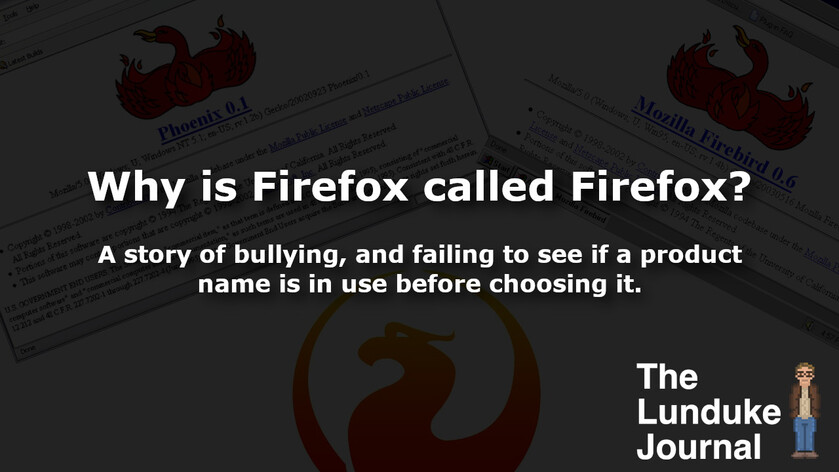
Nowadays, everybody knows the name “Firefox.”
Utter that name, and nearly every computer user will instantly know you are talking about the web browser from Mozilla Corporation… even if Firefox market share has dropped down to less than 3%.
But did you know that Firefox was not originally named “Firefox”?
In fact… the Mozilla Web Browser settled on that name through a series of bad decisions, bullying of another open source project, and a game of word association.
Seriously. You wouldn’t think it… but it’s kind of a wild story.
Our story starts back in 1998…
The source code for Netscape, once the most popular web browser in the world, had just been released as open source under “The Mozilla Project.”
And, over the few years that followed (funded by AOL Time Warner), several web browsers were created which used that core Mozilla code. Web browsers that, for the most part, have long been forgotten.
Web Browsers such as Galeon, K-Meleon, QBAT.i, and SkipStone. Many browsers, for many platforms… all built using the core Mozilla web rendering engine. Yet there was no official “Mozilla” web browser.
By 2002 it was determined that needed to change.
On September 23rd, 2002, the very first release of the official Mozilla web browser hit the Internet.
Version 0.1 of… “Phoenix”.
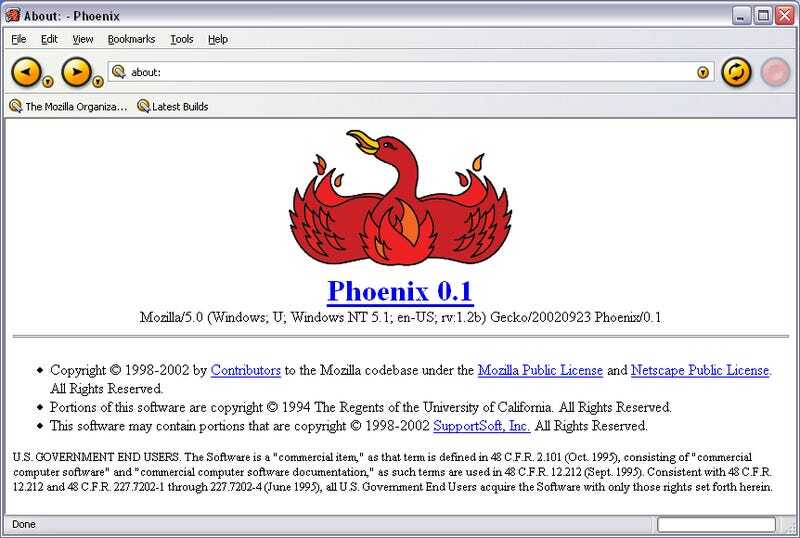
Phoenix! A fantastic name! So much symbolism!
A new web browser, rising from the ashes of Netscape (which appeared to be losing the browser war to Microsoft’s Internet Explorer). An inspired choice.
There was just one teensy-weensy little problem: There was already a web browser with that name.
“Phoenix FirstWare Connect” was a web browser, developed by Phoenix Technologies, that ran entirely in their BIOS (without need for an operating system).
That’s right. Mozilla, the people who spent years building web browser rendering engines, had no idea there was already a browser named “Phoenix” when they chose the name. If only there had been some sort of engine they could have used to search the Web.
*cough cough*
Phoenix Technologies didn’t much care for Mozilla using their name. Obviously.
Either Mozilla needed to change their name… or buckle down for a legal fight they were sure to lose. Mozilla may have had the backing of AOL Time Warner… but Phoenix Technologies was big enough (and with a strong enough case) to take them on.
Luckily, someone at Mozilla managed to get ahold of an encyclopedia (or possibly a really good thesaurus) and found another word that was often used in place of “Phoenix.”
On May 17, 2003 the Phoenix browser was renamed… to Firebird.
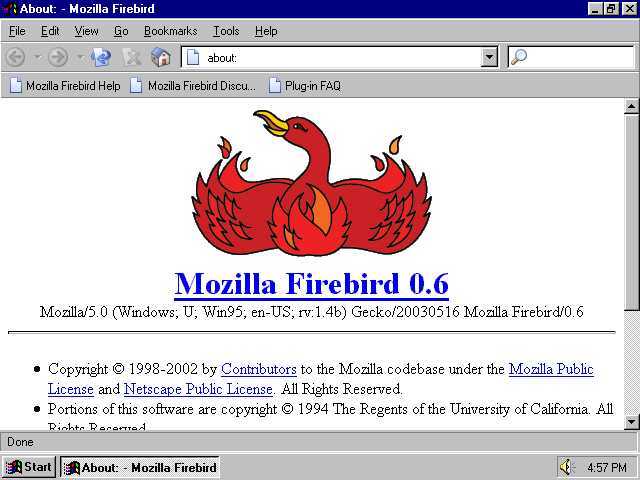
This was incredibly handy… as Mozilla didn’t even need to change the logo! The big, red, flame-y bird could stay! Huzzah!
And, this time around, the Mozilla team learned to use a Search Engine to see if another web browser already had the same name! Smart!
… Unfortunately, it turns out there was already another open source project, sponsored by a different company, using the “Firebird” name: The Firebird Database Server.
But -- and here's the wild part -- Mozilla simply didn’t care.
They decided to adopt the name of the exiting project anyway. They didn’t even contact the other project first. Because they were Mozilla… a part of AOL Time Warner… and they didn’t feel like they needed to do such things.
Having two open source projects — both running on the same computer platforms — using the exact same name and very similar imagery… is not ideal. To say the least.
Especially for the smaller project that came first.... Firebird Database Server.

Having a new project copy your name, then plaster the Internet with links to their new project, all backed by AOL? It would become almost impossible to find information about the original project!
This was, obviously, a fight worth having. The “Firebird Database Server” folks needed to defend their trademark… almost as a matter of survival.
Unfortunately…
Mozilla was part of AOL Time Warner. A huge, mega corporation with a vast army of lawyers.
The company that sponsored “Firebird Database Server”, was a little company called “IBPhoenix” with a limited budget. And, what’s worse, no army of lawyers.
Mozilla was an 800 pound gorilla, and “IBPhoenix / Firebird Database” simply was too small to be able to afford a fight with the likes of AOL Time Warner.
Obviously, IBPhoenix asked Mozilla to not use their name… but to no avail.
After Mozilla refused to change their name, IBPhoenix did the only thing they could think of… they pleaded with their developers and users to email Mozilla, and ask Mozilla to stop using their name.
Mozilla, again, refused. “We're still going to use the project name Mozilla Firebird,” stated a Mozilla representative in an interview where they attacked the database maker.
The public was beginning to see what a bully Mozilla could be.
Things were not going well for Mozilla at this point. Users were beginning to boycott the Mozilla browser, and the bad press was getting severe with headlines like "Phoenix flies from frying pan to fire" and "Mozilla's Firebird gets wings clipped".
After nearly a full year of Mozilla using the “Firebird” name — knowingly harming the “Firebird Database Server” the entire time — Mozilla finally caved to the public pressure to change the name of their web browser.
On February 9, 2004, the name for the Mozilla web browser officially changed to “Firefox” with the release of the 0.8 version.
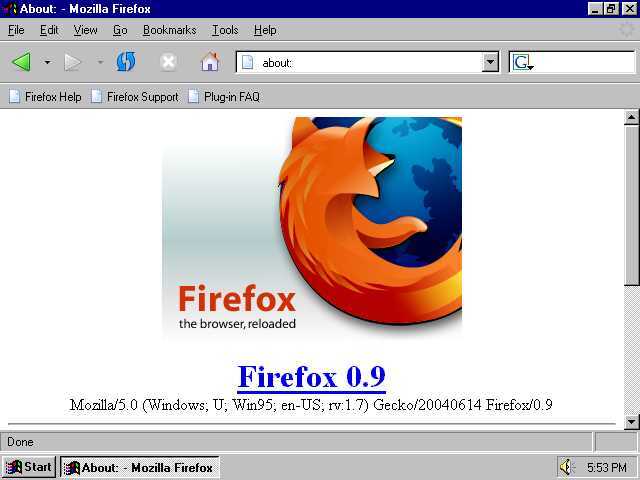
Why did the name become “Firefox”? Because it sounded similar to “Firebird.”
Seriously. “Firefox” is a name for a panda… which had absolutely nothing to do with a “Phoenix” or “Firebird”… but it had “Fire” in it… so it was good enough!
Well, that and Mozilla felt like there couldn’t possibly be any software company, product, or project with that name. The Mozilla leadership was pretty keen on avoiding yet another trademark dispute before their web browser had even reached version 1.0.
Mozilla even made sure to register “Firefox” as a Trademark in the USA. Phew! They learned their lesson!
Well. Almost.
While the Mozilla leadership felt like the name “Firefox” must be totally unique in the software world… it really, really wasn’t.
In fact, the name “Firefox” had been in use for almost a decade by a software company in the United Kingdom named The Charlton Company.
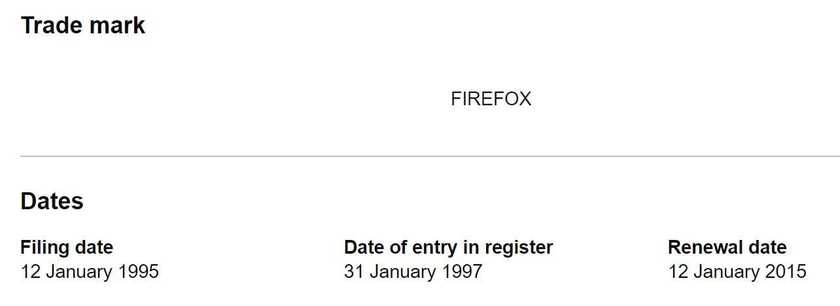
To make matters worse… the name “Firefox” was specifically being used for “communications and connectivity” software. Which is kinda-sorta-exactly how you would describe a web browser.
WOOPS!
This would be like a new company creating a carbonated soft drink named “Coke”… but thinking it was ok to use the already-in-use name… because… you know... they wanted to.
But, rather than get involved in yet another public fight over the third name they’ve chosen… Mozilla tried to settle things behind the scenes. Eventually, by some time in 2005, Mozilla reached a deal with the “Firefox” trademark holder to use the name.
What the terms of that deal are remains unknown.
So, there you have it! Mozilla went through three different names for their web browser — all before they even hit version 1.0.
A wild tale of incompetence, bullying, and not knowing how to use a search engine.
Yet, after all of that, Firefox managed to become a nearly household name. A brand recognized around the world… even if less than 3% of computer users actually use it.